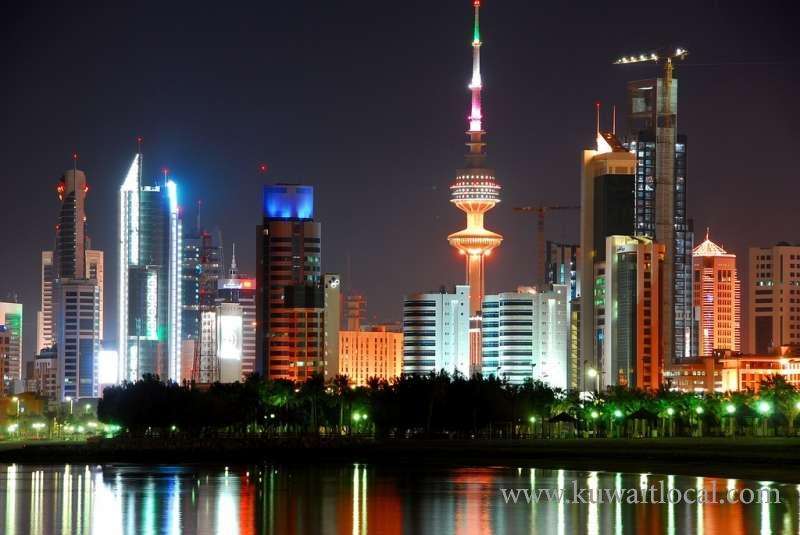Latest News
- Kuwait-Jordan Durra Field Joint Statement Rejected By Iran
- GTD Cracks Down On Vehicle Noise Pollution In Sulaibiya
- Mystery Of Dead Fish At Shuwaikh Beach Sparks Urgent Action
- MEW To Complete Links With The Interior And Justice Ministries B...
- 8 Expats Jailed For Bribing An Officer To Obtain Driver's Licens...
- Weekend Weather Is Expected To Be Hot
- From Tomorrow, Traffic Diversion On Third Ring Road
- Ministry Of Health Refute Rumors On Non-availability Of Antibiot...
- Amir Of Kuwait And Jordan King Renew Commitment To Regional Secu...
- 37 Arrested With Narcotics And Firearms
- Outrage Over Candidate's Arrest
- Six Stores Shut Down In Jahra For Selling Fake Goods
Country Urged To Up Efforts To Stop Trafficking, Abuse Of Domestics

United Nations human rights expert Maria Grazia Giammarinaro welcomed Kuwait’s commitment to fight trafficking in persons, but urged the government to further strengthen its assistance and support measures for trafficked and exploited domestic workers, and adopt prevention measures, especially related to the abolition of the sponsorship (Kafala) system, and full protection of domestic workers’ rights.
At the end of her first official visit to Kuwait, the UN Special Rapporteur on trafficking noted that victims of trafficking in the country are foreign women and men who are, for the most, trafficked for forced labour and labour exploitation including domestic servitude. “Migrants in irregular situations, including some refugees, asylum seekers and stateless persons who work informally in the Kuwaiti economy are at risk of trafficking for both labour and sexual exploitation,”
Ms Giammarinaro said. “Moreover, some domestic workers flee their employers as a result of deception about the type and conditions of employment by recruitment agencies in countries of origin, and exploitation by their sponsors and employers in Kuwait,” she added. “Some domestic workers have been forced into prostitution.”
The expert welcomed Kuwait’s determination to counter domestic servitude, which would otherwise be completely hidden, as it happens in many countries of the world. “The establishment of two shelters, that have to date received more than 7,000 domestic workers fleeing their employers, shows a real commitment in this field and is a benchmark in the region and beyond,” she stated. “This accomplishment is even more significant given that exploitation of domestic workers is prevalent in the region.” “I encourage the government and institutions of Kuwait to continue in this direction, and redouble efforts to better prevent trafficking and protect its victims,” said the expert.
She also called on the government to address existing gaps, and offer real alternatives to deportation when people are not willing to return, including by dropping existing charges filed by their employers against them. The Special Rapporteur drew special attention to the Kafala system, which binds every worker to an employer as a sponsor, and creates a situation of vulnerability which favours abusive and exploitative work relationships leading to human trafficking in the domestic work and in other sectors such as construction. “Abolish and replace the Kafala system to allow migrant workers to enjoy substantial freedom in the labour market,” she urged the Kuwait authorities.
The expert also encouraged the government to place domestic work, which is currently overseen by the Ministry of Interior, under the competence of the Ministry of Labour and the Public Authority for Manpower. “This will recognise the equal rights of domestic workers,” she highlighted.
During her visit to Kuwait City, from Sept 4 to 8, Ms Giammarinaro met with representatives of various government agencies, the judiciary, the Kuwait Institute for Judicial and Legal studies, as well as representatives of civil society, UN agencies, international organisations and the diplomatic community.
The expert also visited the women shelter for domestic workers under the Ministry of Social Affairs and Labor as well as the women’s prison, the private nurseries for children of women prisoners and the immigration detention center for women.
The Special Rapporteur will present a final report on her visit to the UN Human Rights Council in June 2017. Ms Maria Grazia Giammarinaro (Italy) was appointed as Special Rapporteur on trafficking in persons, especially women and children by the UN Human Rights Council in June 2014.
Ms Giammarinaro has been a Judge since 1991. She served as a Pre-Trial Judge at the Criminal Court of Rome, and currently serves as a Judge in the Civil Court of Rome. She was the Special Representative and Co-ordinator for Combating Trafficking in Human Beings of the OSCE, and served in the European Commission’s Directorate-General for Justice, Freedom and Security in Brussels, where she was responsible for combating human trafficking and sexual exploitation of children.
SOURCE : ARABTIMES
Trending News
-
 Kuwait Implements Home Biometrics Services Ahead O...
14 April 2024
Kuwait Implements Home Biometrics Services Ahead O...
14 April 2024 -
 Kuwait Airways Provides Update On Flight Schedule...
14 April 2024
Kuwait Airways Provides Update On Flight Schedule...
14 April 2024 -
 Kuwait Airways Introduces Convenient Home Luggage...
15 April 2024
Kuwait Airways Introduces Convenient Home Luggage...
15 April 2024 -
 Expat Residency Law Amended By Kuwait Ministerial...
20 April 2024
Expat Residency Law Amended By Kuwait Ministerial...
20 April 2024 -
 Two Expats Are Arrested For Stealing From Salmiya...
17 April 2024
Two Expats Are Arrested For Stealing From Salmiya...
17 April 2024 -
 An Egyptian Expat Dies At Kuwait's Airport
11 April 2024
An Egyptian Expat Dies At Kuwait's Airport
11 April 2024 -
 Kuwait Airways Resumes Flights To Beirut And Oman...
15 April 2024
Kuwait Airways Resumes Flights To Beirut And Oman...
15 April 2024 -
 Bay Zero Water Park Kuwait: Summer Season Opens Ei...
11 April 2024
Bay Zero Water Park Kuwait: Summer Season Opens Ei...
11 April 2024 -
 Temperature Increases Cause Electricity Load Index...
21 April 2024
Temperature Increases Cause Electricity Load Index...
21 April 2024 -
 Thief Returns Stolen Money With An Apology Letter...
15 April 2024
Thief Returns Stolen Money With An Apology Letter...
15 April 2024












Comments Post Comment